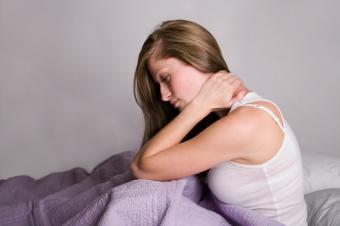Reasons You Can't Sleep

Physical Problems

Medication Side Effects

Anxiety and Stress

Poor Habits

Irregular Sleep Patterns

© 2025 LoveToKnow Media. All rights reserved.

A number of factors can come into play when a person can't sleep. A sleep problem exists if it takes longer than 30 minutes to drift off or when the sleeper wakes in the middle of the night, unable to fall back asleep. Some wake too early in the morning and can't get back to sleep. When they do, they wake feeling tired and foggy. Abnormal sleep patterns often include an imbalance of REM (rapid eye movement) and non-REM sleep

Some people who can't sleep have physical factors that come into play. Painful conditions, sleep apnea, pregnancy, menopause, and periodic limb movement disorder are examples of physical conditions that can lead to restless nights.

Some medications can significantly interfere with sleeping patterns. People who take medicine for depression or high blood pressure may have difficulties sleeping. This applies to many prescription meds. Over the counter medicines for colds and allergies may be the reason someone can't sleep.

Stress can lead to the inability to fall asleep and it may be normal if you can't sleep during stressful times of your life. However, if sleeplessness persists longer than one week, it is important to see your physician.

Poor habits can lead to insomnia. Some people who can't sleep may engage in activities that disrupt the ability to fall asleep such as ingesting caffeine or exercising too late in the day. Some habits, including alcoholic beverages, can cause the sleeper to wake during the night. Mentally demanding activities can make falling asleep difficult as well.

Shift work can wreak havoc on a person's internal clock. Biological rhythms provide natural signals for waking and sleeping. Changing the patterns of rest prevents the body from creating a consistent rhythm. This applies to individuals who stay awake some nights and try to get to sleep early on other nights. A regular routine is part of good sleep hygiene.